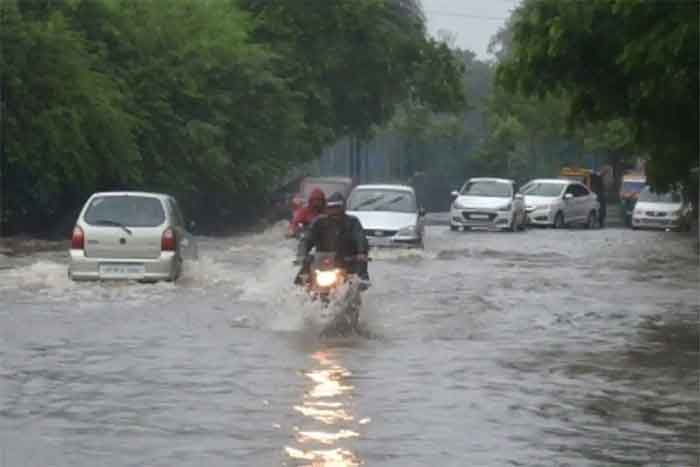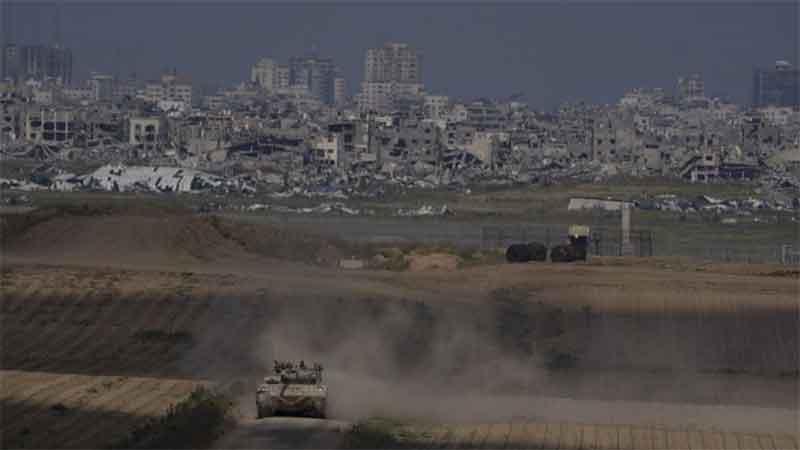Waste, sanitation workers and safai karamcharis across the country have been perhaps the worst-hit community among India’s vast unorganized labour force due to the Covid pandemic and repeated lockdown.
When the first wave of the pandemic arrived in the summer of 2020, they were left to their cruel fate across the big cities, as thousands of emaciated migrant workers walked with their families and little children holding sacks on their heads on the highways. There was not an iota of relief extended to any of them by the central government after a draconian lockdown was announced on March 24, 2020. Later, in May 2021 the second deadly killer wave of Covid, saw even further misery with hundreds dying and thousands more losing jobs and income.
For very long now, waste workers – considered the lowest of the low in the caste, class, economic and social hierarchy – and constantly short-changed in terms of minimum wages and occupational and work-related rights, have been effectively ghettoized and marginalized. Their relentless suffering, and the daily injustice which stalks their life as they toil in sub-human conditions, has also been rendered invisible.
All civilized countries and societies have classified sanitation and waste workers as the front line Covid warriors during the pandemic along with health workers, grocery store owners, doctors and nurses, among others. Not so in many parts of urban and affluent India.
For instance, during the pandemic, it has been a common site in Noida, and parts of East Delhi, surrounded by high-rise, high-end sky-scrapers and affluent and palatial bungalows and housing societies to see waste workers and garbage-pickers carrying the waste on their ramshackle carts, with no masks, gloves, soap or sanitizers. They would wear the same dirty clothes day after day, chit-chat with fellow waste-workers at road crossings, collect and dump the garbage every day from the housing societies and the markets and disappear into the blue. No one cared a damn though they too were at high risk each day with no social security and medical insurance. Surely, they too were frontline ‘Covid warriors’ like other health workers.
Indeed, before the pandemic too, over the years, a series of accidents had happened in Delhi involving sanitation and sewer workers working in dangerous and sub-human conditions, with no protective gear whatsoever, entering poisonous, filthy and dirty sewage pits, risking their lives every day.
In June this year, the Dalit Adivasi Shakti Adhikar Manch (DASAM) and Loktantrik Jan Pahal (LJP), released an “investigation report” related to the death of two sanitation workers at the ‘Namami Gange Project Site’. On the morning of May 31, two workers lost their lives while cleaning sewerage in the Beur locality of Patna.
Namami Gange is a high profile flagship programme, launched by Prime Minister Narendra Modi, is meant to clean the Ganga, which is choked with filth, plastic, non-biodegradable substances, human and industrial waste, and garbage.
 According to a fact-finding team by DASAM and LJP “The problem of cleaning labourers has only grown with rapid urbanisation. As in the case of Patna, work is under progress in the city to convert all major drainages and nalas into an underground sewerage system. This is to carry the sewerage to nearby water treatment plants in order to save the nearby rivers from getting polluted from the untreated filth of the city. The deaths took place on a site associated with the Namami Gange project. It has been observed that drainage pipes get choked due to inefficient garbage management, causing frequent trouble in the sewerage system. In late 2019, when the southern and western part of Patna was facing unprecedented water-logging, multiple reports had suggested that concerned authorities do not have the map of the existing sewerage system of the city. Under such circumstances, the job of cleaning workers becomes hell.”
According to a fact-finding team by DASAM and LJP “The problem of cleaning labourers has only grown with rapid urbanisation. As in the case of Patna, work is under progress in the city to convert all major drainages and nalas into an underground sewerage system. This is to carry the sewerage to nearby water treatment plants in order to save the nearby rivers from getting polluted from the untreated filth of the city. The deaths took place on a site associated with the Namami Gange project. It has been observed that drainage pipes get choked due to inefficient garbage management, causing frequent trouble in the sewerage system. In late 2019, when the southern and western part of Patna was facing unprecedented water-logging, multiple reports had suggested that concerned authorities do not have the map of the existing sewerage system of the city. Under such circumstances, the job of cleaning workers becomes hell.”
The dead sanitation workers were Mohamad Idrish and Mohamad Iqbal, both from Murshidabad district in West Bengal. They were poor ‘outsiders’ and had no contacts or connections. Their deaths went unnoticed, and unpunished. The case was soft-peddled from day one.
On the basis of circumstantial evidence, the fact-finding team found that the company and the contractor doing the project was “directly responsible” for the deaths of laborers. Therefore, this was a case of cognizable offence — but the police thought otherwise, predictably. “Thus, the fact-finding team reached the conclusion that the police are working at the behest of the company and contractor.”
A ‘Roundtable with Sewer Workers’ was organized by DASAM and partner organisations on August, 2021 at Tahirpur, Delhi, where sewer workers from all over Delhi collected along with workers’ unions and some official organizations of the government.
The key issues which emerged from the roundtable included: They receive no safety equipment for their work; money is deducted from their salary for non-working days such as Saturday, Sunday, and other public holidays; wages are different throughout Delhi; workers at some places receive a salary of Rs 14,500 in the bank out of which they have to return the money to the Junior Engineer (J.E.) as the J.E. deducts the money for non-working days, that is, Saturday, Sunday and other public holidays and calculates the wage as Rs 400 to be given per working day.
In work areas where there is literally a small space and the machine cannot enter, the sewer workers have to enter manually. Safety equipment often only means a long rope tied to their waist as they enter the filthy underground with deadly, poisonous fumes.
However, despite risking their lives, they face complete job uncertainty. If they demand their rights, or wage parity, they can lose their jobs almost instantly.
Said a worker, “We do not know, if we will be able to feed our families the next day.”
The waste and sewer workers are also demanding that their professional identities be recognised, their rights and identity should be given priority, and that they should get employment guarantees, full wages, safety equipment and the right to organize. In Delhi, they have demanded equal and uniform wages throughout the capital. Adequate medical facilities and other facilities which are provided to permanent employees should be extended to the workers working under the exploitative contractual system.
Informally, it is well known that waste-pickers in the informal sector play an important role in the primary collection and segregation of solid waste. However, organised waste management structures still choose to ignore the vast army of ragpickers and waste workers. Affluent housing societies and the powerful resident welfare societies, including urban local bodies, treat them with utter disrespect, not even giving them proper wages. Their immense contribution in preserving the environment, a clean neighbourhood, and segregating waste, is totally ignored.
At a Community Roundtable on October 2, 2021 at the MCD Baraat Ghar, Nizammuddin Basti, in New Delhi, more than 100 waste pickers, men and women, participated. They narrated their plight and occupational hazards, followed by a panel discussion of activists working with waste pickers.
Shashi B. Pandit from DASAM spoke about how the waste workers have not seen progress since decades despite changes in laws under various administrations.
“We were living in misery and continue to do so,” he said. He raised the same question yet again: why are the waste workers still kept away from the waste management system?
Mansoor Raza, another activist, stressed on the urgent need for professional and social recognition for the unorganised sector. An identity card for the unorganised sector is of utmost importance to fight a long battle for fundamental labour rights he said.
Amit Sengupta is Executive Editor, Hardnews and a columnist, currently based in Kolkata













































